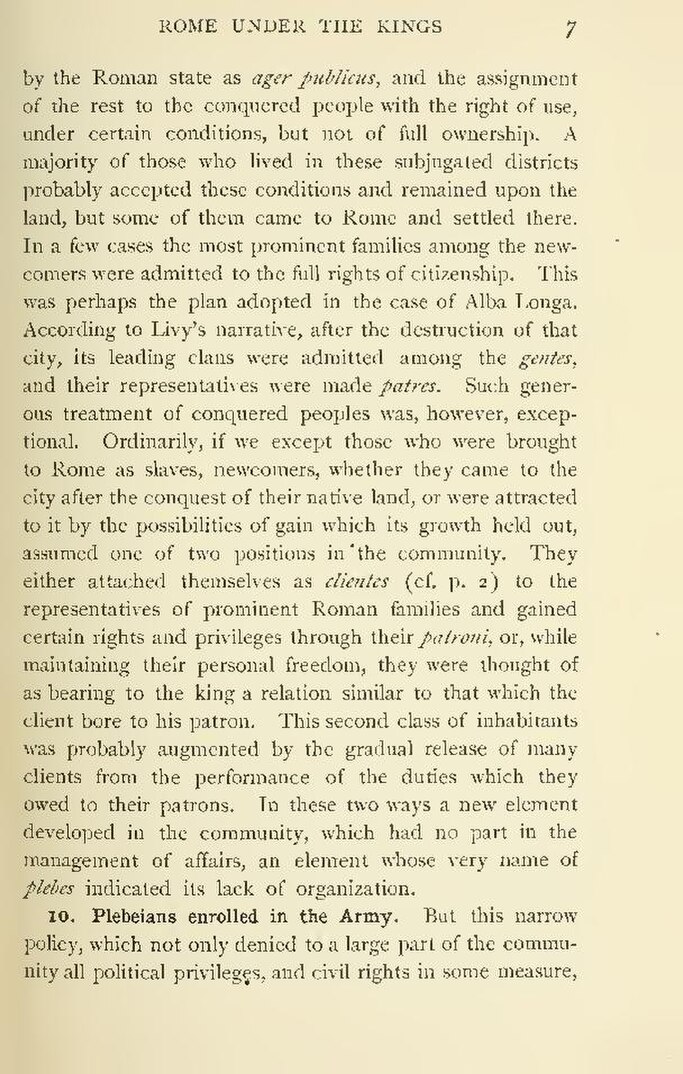by the Roman state as ager publicus, and the assignment of the rest to the conquered people with the right of use, under certain conditions, but not of full ownership. A majority of those who lived in these subjugated districts probably accepted these conditions and remained upon the land, but some of them came to Rome and settled there. In a few cases the most prominent families among the newcomers were admitted to full rights of citizenship. This was perhaps the plan adopted in the case of Alba Longa. According to Livy's narrative, after the destruction of that city, its leading clans were admitted among the gentes, and their representatives were made patres. Such generous treatment of conquered peoples was, however, exceptional. Ordinarily, if we except those who were brought to Rome as slaves, newcomers, whether they came to the city after the conquest of their native land, or were attracted to it by the possibilities of gain which its growth held out, assumed one of two positions in the community. They either attached themselves as clientes (cf. p. 2) to the representatives of prominent Roman families and gained certain rights and privileges through their patroni, or, while maintained their personal freedom, they were thought of as bearing to the king a relation similar to that which the client bore to his patron. This second class of inhabitants was probably augmented by the gradual release of many clients from the performance of the duties which they owed to their patrons. In these two ways a new element developed in the community, which had no part in the management of affairs, an element whose very name of plebes indicated its lack of organization.
10. Plebeians enrolled in the Army. But this narrow policy, which not only denied to a large part of the community all political privileges, and civil rights in some measure,
